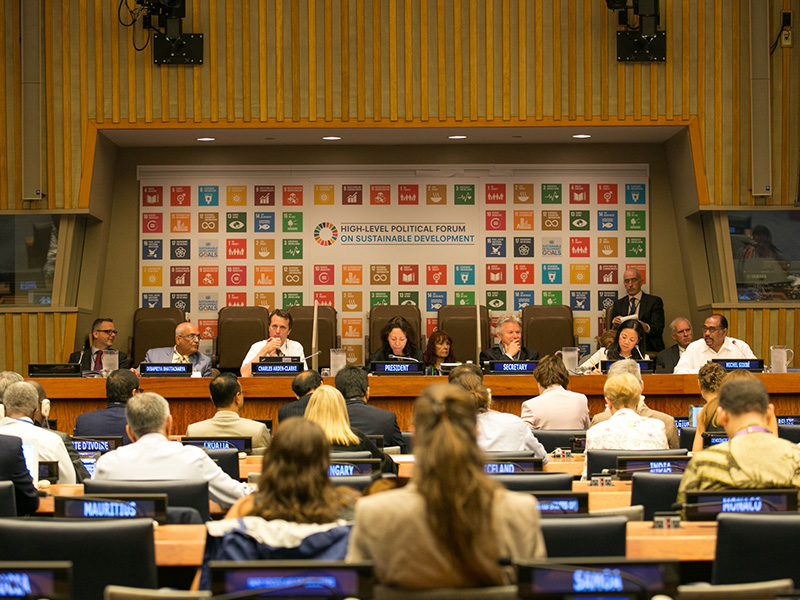The global 2030 Agenda is based on integrated and indivisible Sustainable Development Goals (SDGs). For greater benefit, countries would need to implement these Goals in an interlinked fashion. But for success of the national efforts, committed global support measures have to be delivered. Regrettably, such support from global partnership is yet to come by, even two years after the adoption of this ambitious universal agenda.
This was mentioned by Chair of Southern Voice, Debapriya Bhattacharya. Debapriya, who is also a Distinguished Fellow at the Centre for Policy Dialogue (CPD), Bangladesh was speaking at a session on “Leveraging Interlinkages for Effective Delivery of SDGs” at the High-Level Political Forum (HLPF), New York (14 July 2017). HLPF is the highest body of the United Nations member states that annually takes stock of the progress in SDG implementation.
He further said, that there is no adequate instrument at the UN that can ensure accountability of the external stakeholders in the development of the lagging countries. Debapriya suggested revision of the guidelines of the Voluntary National Review (VNR) mechanism to reflect explicitly the interlinkages between the domestic and international efforts. He lamented that the current state of global economic governance is impeding faster growth of the developing countries. These factors include international trade negotiations, illicit financial outflows, international tax measures, transfer of technology, climate financing and intellectual property rights regime.
In his speech, Debapriya also shed light on the fact that intellectual clarity is essential for SDG implementation, and for establishing conceptual and analytical frameworks for achieving the 2030 Agenda. He pointed out that intra-linkages must be established at the level of lead institutions or ministries as a precondition for leveraging inter-linkages for implementing SDGs at the country level. Citing various tools employed for embedding the SDGs in national policies and documents, he explained that the major problem with the existing tools is that they focus at the aggregate level, at best goal level, do not dig deeper into national contextual realities and are quite often data driven.
The other speakers at the session were Michel Sidibé, Executive Director of UN AIDS and Charles-Arden-Clarke, Head, Economy Division, UN Environment Programme. Irene Khan, Executive Director, International Development Law Organisation (IDLO), served as the lead discussant. Minh-Thu Pham of UN Foundation moderated the session, while Ambassador Marie Chatardova of Czech Republic and Vice President of UN Economic and Social Council was in the chair.
SV’s Chair was invited for the third consecutive time to address the HLPF in New York. This year’s HLPF explored the theme “Eradicating poverty and promoting prosperity in a changing world.”


